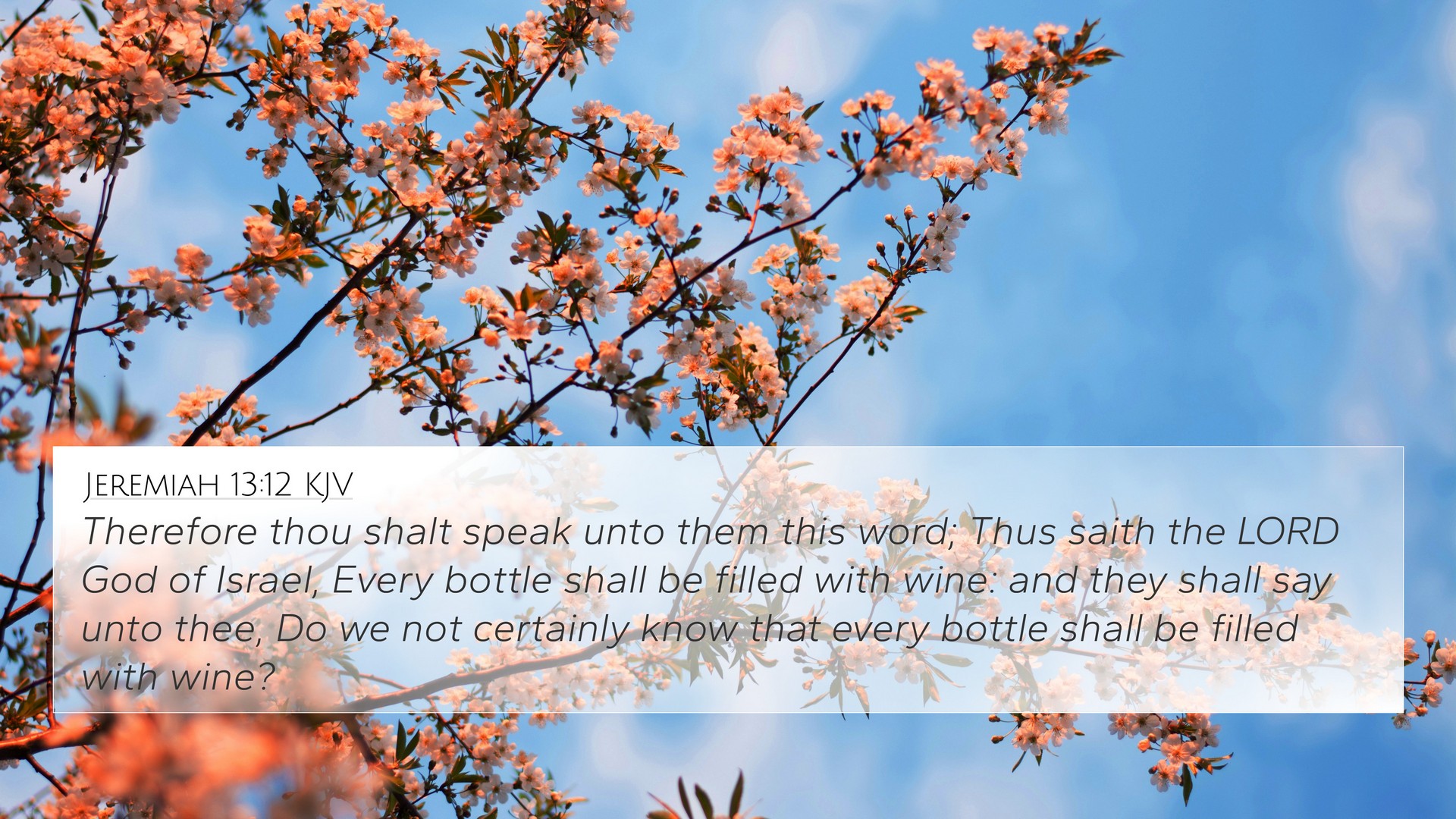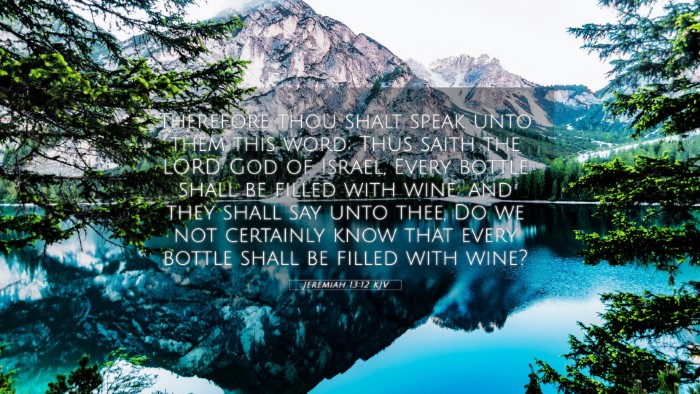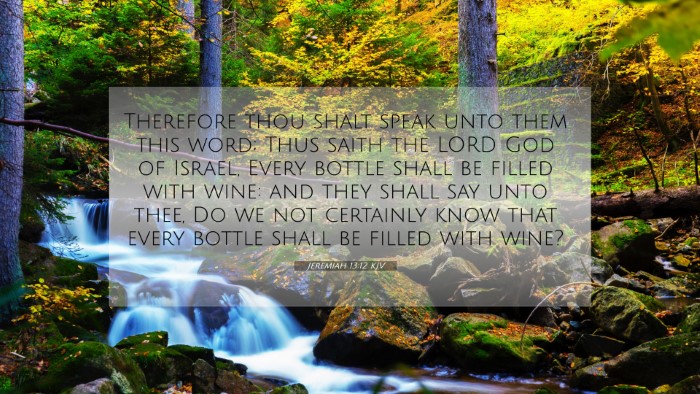Understanding Jeremiah 13:12
Jeremiah 13:12 states:
"Therefore you shall speak to them this word: 'Thus says the LORD God of Israel: Every bottle shall be filled with wine.' And they will say to you, 'Do we not certainly know that every bottle will be filled with wine?'"
Summary of the Verse
This verse is a prophetic declaration from God through the prophet Jeremiah, using the metaphor of wine bottles to convey a deeper spiritual message about impending judgment and the certainty of God's word.
Commentary Insights
Insights from notable biblical commentators shed light on the meaning and implications of this verse:
-
Matthew Henry:
Henry emphasizes the certainty of the prophecy, using the imagery of wine as a metaphor for the impending judgment. The metaphor of bottles signifies vessels that will inevitably be filled, signalling that God’s decrees will come to pass as promised.
-
Albert Barnes:
Barnes highlights the idea that the people of Israel, when told about the inevitable filling of the wine bottles, were in disbelief, reflecting their spiritual blindness. The wine represents both joy and impending judgment, making the statement profound in its dual significance.
-
Adam Clarke:
Clarke provides a broader context, detailing how the message delivered by Jeremiah aimed to provoke thought regarding their condition and behavior. The reference to wine bottles serves as a stark reminder that their spiritual apathy would lead to negative consequences.
Thematic Connections and Cross-References
This verse intricately connects with various themes and verses throughout the Scriptures, illustrating God's consistent message and character. Below are notable cross-references:
- Isaiah 24:7: "The new wine mourns; the vine languishes...". This verse connects the theme of judgment with the imagery of wine.
- Ephesians 5:18: "And do not get drunk with wine, for that is debauchery, but be filled with the Spirit." This verse contrasts the filling of wine with the filling of the Spirit, emphasizing spiritual significance.
- Matthew 9:17: "Neither is new wine put into old wineskins..." Christ speaks of the transformation of old to new, resonating with Jeremiah's theme of renewal or judgment.
- John 2:3-10: The miracle at Cana where Jesus turns water into wine represents both the joyous fulfillment of prophecy and God's salvation message.
- Joel 3:18: "And it shall come to pass in that day that the mountains shall drip with sweet wine..." This parallels the concept of abundant provision amidst judgment.
- Proverbs 23:30-31: The warnings against the dangers of excessive wine drinking echo the need for awareness in spiritual matters.
- Lamentations 2:12: "They say to their mothers, 'Where are the grain and wine?'..." Reflects the dire situation of the people, linking back to Jeremiah's message.
Inter-Biblical Dialogue
This verse encourages us to engage in a comparative Bible verse analysis and explore the connections between Scripture passages. By observing how various Bible verses relate, we gain insights into the thematic depth of God's message across different contexts. Following are some methods for effective cross-referencing:
- Tools for Bible Cross-Referencing: Utilize Bible concordances and reference guides to identify relationships among verses.
- Identifying Patterns: Look for common themes such as judgment, hope, or renewal in both the Old and New Testaments.
- Comparative Studies: Focus on the Pauline epistles and their connections to prophetic writings to grasp the continuity in divine revelation.
- Contextual Analysis: Understanding the historical and cultural context in which verses were written provides additional meaning.
Conclusion
Jeremiah 13:12 serves as a multifaceted verse that speaks directly to the heart of God's message through the ages. Its implications go beyond the immediate audience to speak to readers today about the certainty of God's word and the importance of being spiritually cognizant. By engaging with the interconnectedness of Scripture through tools for Bible cross-referencing, we deepen our understanding of God's divine narrative.



